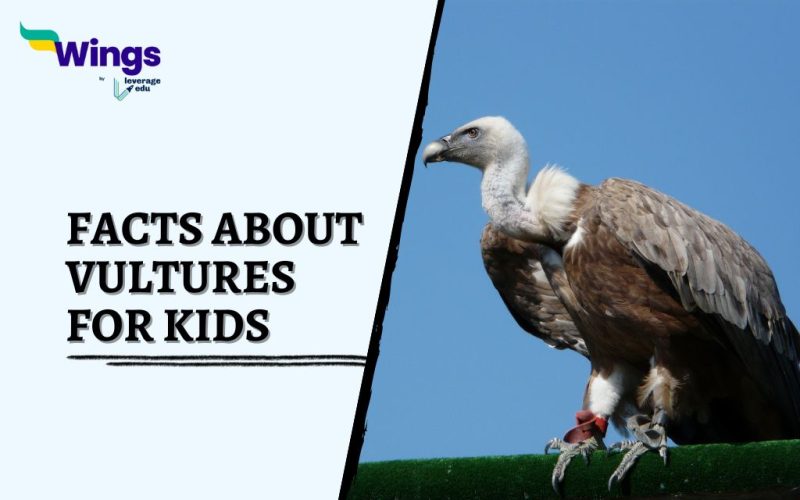Did you know that predominantly perceived as bad, vultures have been worshipped in many ancient cultures? Facts about vultures state that this magnificent bird is found on every continent except for Antarctica and Australia. Moreover, there are about 23 species of vultures in the world. They are best acknowledged for playing a crucial role in our ecosystem by scavenging and cleaning up carcasses. Reading facts about birds sounds fascinating, right? Well, there is more to it. In this blog, you will find 15 facts about vultures for kids with pictures for kids.
Table of Contents
| Particulars | Details |
| Average lifespan | Upto 30 years in the wild |
| Diet | The carcasses of dead animals |
| Habitat | Plains and open mountain regions |
| Nature | Social birds |
| Predators | Eagles, hawks, and owls |
General Facts About Vultures for Kids
1. Vultures belong to the Animalia kingdom.
2. Vultures are divided into two groups- New World vultures (found in North America and South America) and Old World vultures (found in Africa, Asia, and Europe).
3. While Old World vultures use their sight to find food, New World vultures use their sense of smell to detect dead animals.
4. Vultures have an excellent sense of smell, allowing them to detect decaying flesh from great distances.
5. Their wingspans can reach up to 10 feet, helping them cover vast distances easily.
6. When feeling threatened, vultures regurgitate or vomit which helps them stay safe from predators.
7. Vultures are social birds that live in large groups called wakes or committees.
8. Vultures can live up to 30 years in the wild. This is because of their ability to adapt to various environments.
9. They like to eat fruits, insects, and small animals. Interestingly, they also like to eat the bones of dead animals.
Fun Facts About Vultures
1. Vultures do not have a voice box or syrinx which is why they cannot sing like other birds. However, they can make some sounds like grunts, hisses, or snarls.
2. The acid in their stomachs is stronger and more corrosive than the acid found in other birds and animals. This helps them eat rotten flesh without getting sick.
3. Vultures urinate and defecate on their legs and feet to keep their body temperature cool. Additionally, this helps kill bacteria or parasites. This process is known as urohydrosis.
4. The Egyptian vulture is the world’s only tool-using vulture species. It picks up sharp stones and throws them at ostrich eggs to eat the yummy stuff inside.
5. Baby vultures are called fledglings.
6. When eating dead carcasses, vultures tend to follow a strict social order based on body size and beak strength. Small or weak vultures wait to eat the scraps left behind by larger or dominant members.
Also Read: 10 Interesting Facts About Eagle for Kids
Vulture characteristics
Now that you have read 15 facts about vultures, let’s dig a little deeper into vulture characteristics. This will help you remember important information about vultures.
- Vultures are scavengers who feed on carcasses.
- Their stomachs have strong enzymes to digest toxins and bacteria.
- Unlike eagles and hawks, vultures do not have strong feet.
- They have long toes and blunt talons or claws which help them walk on the ground.
- Vultures have long beaks called bills, specifically designed to tear flesh off dead bodies.
Related Blogs
| Facts About Peacocks | Interesting Facts About Sparrow |
| Interesting Facts About Parrot | Facts About Pigeons |
| Facts about Forest and Forestry | Facts About Trees |
FAQs
Some facts about vultures are that they pee and defecate on their legs to cool down, their stomachs have strong enzymes to digest toxins, and lastly, they have excellent sense of smell.
Vultures are known to eat small animals, reptiles, and birds. Although they primarily feed on decaying carcasses, they can also hunt small animals and eat fresh meat.
Specialities of vultures include that they can survive long periods without food due to their ability to adapt to different environments easily. Moreover, their beaks are extremely strong and help tear meat, muscle, and even bones off dead carcasses.
Hope you had fun reading these 15 facts about vultures. If you want to know more about topics like this, then visit our Interesting Facts and General Knowledge page!
 One app for all your study abroad needs
One app for all your study abroad needs













